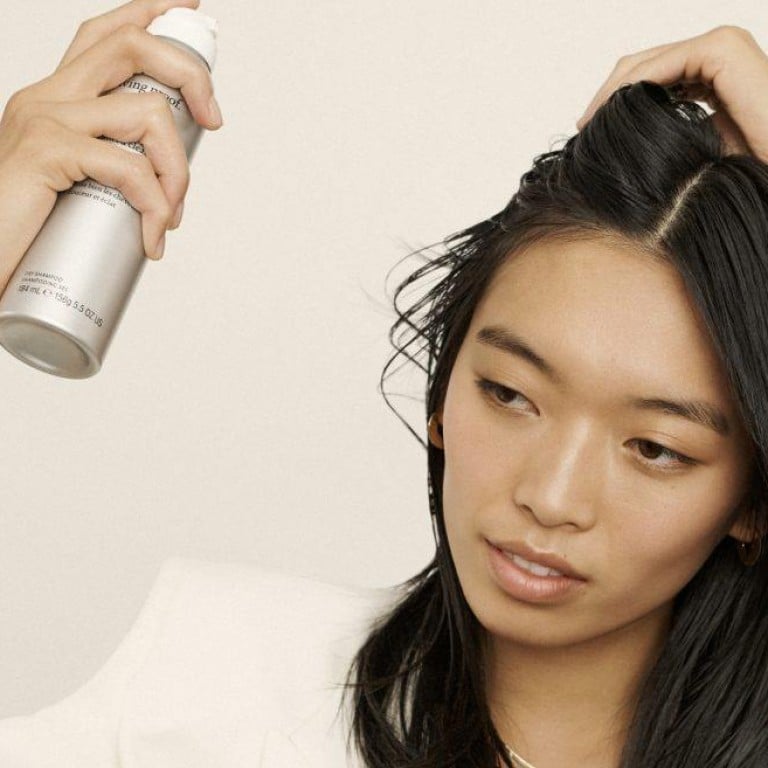Explainer / How do dry shampoos work, and are they bad for your hair? Spray and powder solutions from Living Proof and Moroccanoil promise easy haircare on the go – but other products were pulled by the US FDA

- Dry shampoos have transformed the morning routine of busy bees on the go, boosting hair volume, texture and removing nasty scents with oil-absorbing powders or aerosols
- But products from Dove, Nexxus, Suave, TIGI and Tressemmé were banned in the US after the Food and Drug Administration raised concerns about carcinogens – here’s what you need to know before buying
As the demands of modern life grow, so does the need for ingenious solutions that allow us to effortlessly balance our busy routines with self-care rituals. Amid this quest for convenience and efficiency, the beauty industry has embraced the emergence of dry shampoo. Often hailed as a time-saving marvel, this effort-free hair-cleansing solution has quickly woven itself into the fabric of many user’s daily grooming rituals – but is dry shampoo merely a fleeting convenience for travellers and time-starved worker bees, or could it transform how we care for our hair forever?
And, despite all this promise, many people have understable concerns. So what are the negatives, and does dry shampoo actually damage your hair? Here’s everything you need to know about the like-magic haircare trend ...
What is dry shampoo, and how does it work?

As the name might suggest, the whole point of dry shampoo is to cleanse and refresh your hair without the use of water. Its primary purpose is to rid your hair of excess oils that can cause it to appear dull and greasy, while also working as an effective odour neutraliser, making it the ideal solution for those times when your hair carries the scent of day-old happenings.
The active ingredients in dry shampoo typically consist of silica powder, starch or clay, which target the sebum (natural oils) at your hair’s roots, and are absorbed to leave your locks looking and feeling refreshed.

It’s worth noting that, in October 2022, the US Food and Drug Administration (FDA) raised the alarm about the side-effects of dry shampoo. Several well-known brands, including Dove, Nexxus, Suave, TIGI and Tressemmé were pulled from the shelves due to the potential presence of elevated levels of benzene, a compound classified by the FDA as a human carcinogen.
These developments underscore the importance of vigilance and informed consumer choices – so be sure to stay informed and consider ingredient safety and third-party testing to prioritise your well-being.
How dry shampoo works

Powder forms of dry shampoo excel at absorbing excess oil, but they may impart a slightly “grittier” texture to your hair upon application. On the other hand, aerosol spray versions offer simplicity and often come with additional features such as tinting, pleasant scents, or enhanced texturing capabilities. The choice between the two will depend on your hair type as much as your personal preferences.